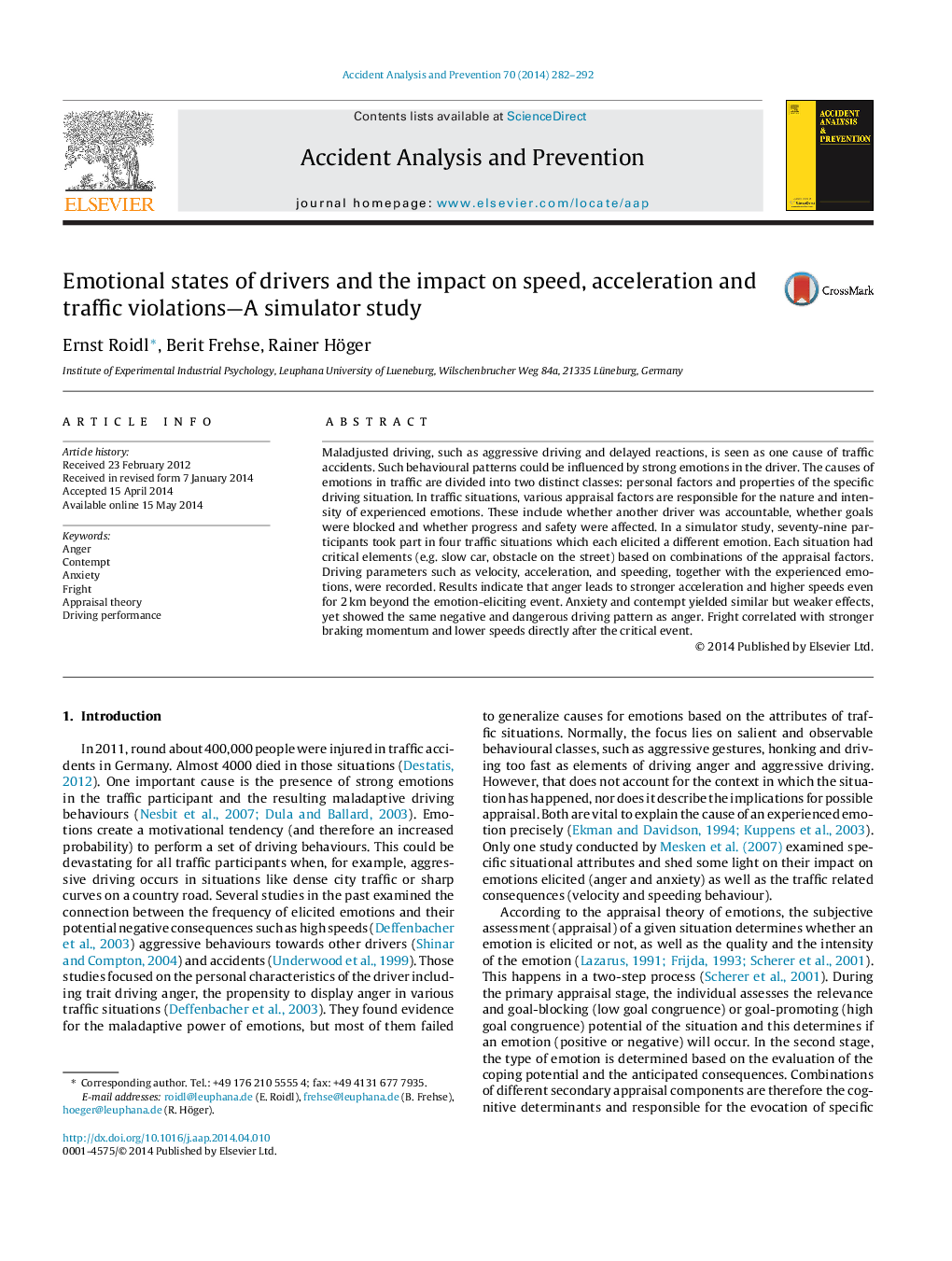| Article ID | Journal | Published Year | Pages | File Type |
|---|---|---|---|---|
| 572325 | Accident Analysis & Prevention | 2014 | 11 Pages |
•Appraisal theory is applicable to describe traffic situations.•Anger and contempt have similar maladaptive impact on driving patterns.•Anxiety and fright differ hugely in their impact on driving patterns.•Fright is the only emotion with a positive impact on specific driving patterns.
Maladjusted driving, such as aggressive driving and delayed reactions, is seen as one cause of traffic accidents. Such behavioural patterns could be influenced by strong emotions in the driver. The causes of emotions in traffic are divided into two distinct classes: personal factors and properties of the specific driving situation. In traffic situations, various appraisal factors are responsible for the nature and intensity of experienced emotions. These include whether another driver was accountable, whether goals were blocked and whether progress and safety were affected. In a simulator study, seventy-nine participants took part in four traffic situations which each elicited a different emotion. Each situation had critical elements (e.g. slow car, obstacle on the street) based on combinations of the appraisal factors. Driving parameters such as velocity, acceleration, and speeding, together with the experienced emotions, were recorded. Results indicate that anger leads to stronger acceleration and higher speeds even for 2 km beyond the emotion-eliciting event. Anxiety and contempt yielded similar but weaker effects, yet showed the same negative and dangerous driving pattern as anger. Fright correlated with stronger braking momentum and lower speeds directly after the critical event.
